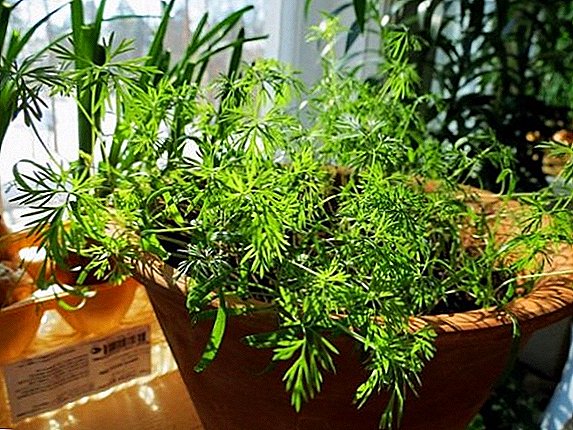
Many consider spicy ginger root as a valuable product for humans: it nourishes the body with vitamins and stimulates the metabolism.
However, ginger is not good for everyone: for some diseases, eating a stinging root can do more harm than good.
Under what diseases is ginger harmful to the health of adults and children? In our article we will tell you how the plant can be dangerous, and what are the contraindications to the use of ginger, as well as what to do if there is an indisposition.
What could be a dangerous plant?
Why the product can be harmful:
 ginger is invigorating, but people with psycho-emotional disorders can deprive sleep;
ginger is invigorating, but people with psycho-emotional disorders can deprive sleep;- Spice stimulates blood circulation and the regeneration of all body tissues, including malignant tumors: frequent root consumption contributes to the growth of tumors, the appearance of metastases;
- the root has a warming effect, but can cause diarrhea, belching, an attack of an ulcer or gastritis in people with a gastrointestinal tract;
- seasoning kindles the metabolism, but at the same time increases the appetite and can provoke a set of new kilograms;
- the product contains a lot of vitamins, therefore, has a high allergenicity, provokes the appearance of rashes and dries the skin;
- the root stimulates digestion and the production of bile, but for people with gallstone disease, the use of the product can turn into an attack.
Ginger is a controversial product, and it is necessary to use it for food and medicinal purposes carefully. For one person, the product will be useful, and another will cause a serious red.
Contraindications to the use
There are a number of contraindications in which the root is prohibited for food and medicinal purposes.
Contraindications include:
- chronic diseases of the gastrointestinal tract;
- cardiovascular diseases (stroke, heart attack, arrhythmia, hypertension);
- allergy;
- insomnia, nervous disorders;
- pregnancy and breastfeeding;
- hemorrhoids;
- dermatitis.
Ginger tea is useful for catarrhal diseases, but it is categorically impossible to use it, if the cold proceeds with an increase in temperature.
Is the root harmful to human health?
For different groups of people, burning root is harmful in many ways.
Men
 Harmful properties of spices for men:
Harmful properties of spices for men:
- aggravates the condition in cancer of the small intestine, which is usually diagnosed in men;
- with frequent use as a means for potency, the product may provoke diseases of the digestive tract, cause arrhythmia;
- men more often than women suffer from poor blood clotting, and a stinging root further reduces the ability of blood to clot.
Women
Burning root injury for women:
- may increase the intensity of bleeding during menstruation;
- increases sweating;
- stimulates appetite and provokes overeating;
- dries the skin of the face, may cause a rash.
In the presence of pathologies in the early stages of pregnancy, the use of the root can provoke a miscarriage, and in the late stages - premature birth. When breastfeeding spice affects the taste of milk.
Children
Adherents of traditional medicine are advised to introduce spice in the diet of children 2-3 months after the start of complementary foods. However, too early introduction of a burning root in the diet of a baby can cause irreparable harm to the child's weak digestive system.
Eating a baby ginger can provoke:
- burns of mucous membranes of the mouth, esophagus and stomach;
- hyperactivity;
- trouble falling asleep;
- severe allergies, rash.
Gradually introduce spice in the diet of the child is possible only with 2 years.
Danger of using harmful spices
Spicy root is not combined with certain groups of drugs, the use of ginger in unlimited quantities and despite the ban can be harmful to health.
When interacting with drugs
 Spicy root is incompatible with some groups of drugs, namely:
Spicy root is incompatible with some groups of drugs, namely:
- reduces the effect of drugs against arrhythmias and angina pectoris;
- reduces the effect of drugs against arterial hypotension;
- enhances the blood thinning property of aspirin;
- reduces or completely blocks the work of sedatives and hypnotic drugs.
Applying the above groups of medicines, it is necessary to completely abandon ginger in any of its forms.
With incompatible products
Spicy root is combined with almost all food groups. However, doctors do not recommend eating spice with hot vegetables: garlic, radish, radish, onion. With such a combination may appear severe belching, abdominal pain, bloating, heartburn.
With an overdose
If you actively add ginger as a seasoning to all dishes, drink ginger tea in liters or lean on pickled root, an overdose of biologically active substances can occur, with which the product is extremely rich.
Signs of overdose are:
- nausea;
- burning sensation in the stomach;
- allergies and flaking of the skin;
- vomiting;
- diarrhea.
Side effects
Depending on the disease, the following side effects may occur after consuming ginger:
- high blood pressure;
- aggravation of gastritis, ulcers, hemorrhoids;
- pain in the kidneys and liver;
- skin peeling;
- digestive disorders;
- heart pain, arrhythmia;
- insomnia;
- headache.
In the presence of allergy after consuming spices, unpredictable reactions of the body can occur up to angioedema.
What to do if a malaise is detected?
 If, immediately after ingestion of the root, side effects such as abdominal pain, heartburn, heart palpitations, sweating and anxiety occur, it is necessary to drink a glass of warm milk - it will help relieve symptoms.
If, immediately after ingestion of the root, side effects such as abdominal pain, heartburn, heart palpitations, sweating and anxiety occur, it is necessary to drink a glass of warm milk - it will help relieve symptoms.- You can also take a sorbent that will remove irritating substances from the body (Polysorb, activated carbon) and means that protect the mucous membranes of the esophagus and stomach (Maalox, Smekta). In the future, it is worth refusing to use the product or severely limit its amount in the diet.
- If the harm of the spice was found some time after the beginning of its systematic use, you should immediately stop eating it and consult a doctor.
Sites are full of headlines about the beneficial properties of ginger, but many forget about the possible harm from its use. Before the introduction of ginger in the diet, you must ensure that there are no contraindications, Start with a small amount and closely monitor the body's response to the spicy product.


 ginger is invigorating, but people with psycho-emotional disorders can deprive sleep;
ginger is invigorating, but people with psycho-emotional disorders can deprive sleep; If, immediately after ingestion of the root, side effects such as abdominal pain, heartburn, heart palpitations, sweating and anxiety occur, it is necessary to drink a glass of warm milk - it will help relieve symptoms.
If, immediately after ingestion of the root, side effects such as abdominal pain, heartburn, heart palpitations, sweating and anxiety occur, it is necessary to drink a glass of warm milk - it will help relieve symptoms.









